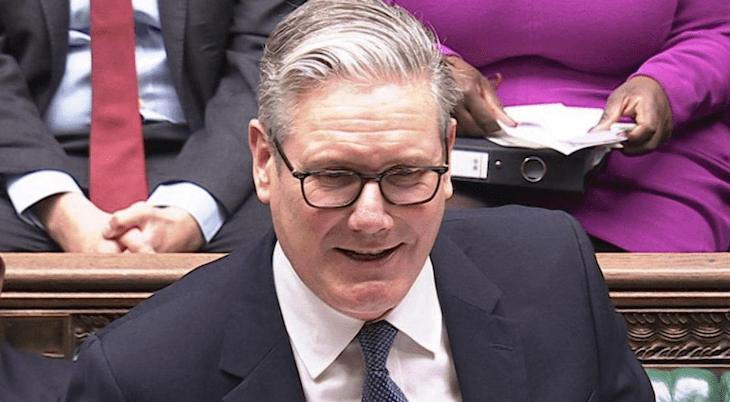At conferences and roundtables on counter extremism in recent months, it has been impossible to escape the terms ‘mis’ and ‘disinformation’. For among experts, practitioners, academics, civil servants and police officers, it is the default explanation for understanding not only extremism in Britain, but the wider mood of popular discontent.
Over the weekend, this view was lent further credence in the pages of the Observer by two counter-extremism heavyweights, former counter-extremism commissioner Dame Sara Khan and the former head of counter-terrorism police, Neil Basu. Together, they warn that the government’s new counter-extremism plans are not enough ‘to address a toxic pool of hatred, conspiracy theories and “dangerous rhetoric” from high-profile figures including Elon Musk.’
The tendency to view everything through the lens of ‘narratives’ is a fundamental failing of the extremism sector’s thinking
Parts of Khan and Basu’s diagnosis are largely – and depressingly – correct. We live in an extremely polarised and fragile moment, where extremist groups thrive and simmering tensions look likely to boil over at any moment. But their decision to blame people like Musk for the rise of extremism risks exacerbating the very problem they seek to address. For starters, it could lead the government to believe the fantasy that were it not for misinformation peddled by rabble rousers online, the febrile atmosphere in our country might not exist. This is the 21st century version of an ailing regime blaming ‘outside agitators’ while a crowd roils outside the presidential palace. It is not the way to prevent more violence or extremism on our streets.
In his remarks, Neil Basu suggests Musk’s online activity on X has the potential to cause race riots, or even more alarmingly, an outright race war. This is asserted without evidence and seems unlikely. Musk has certainly re-amplified the grooming gangs scandal, but domestic anger was bubbling up again with or without his involvement.
Basu warns that another Darren Osborne – who drove into worshippers outside Finsbury Park Mosque in 2017 – is out there. He may well be. But as the Magdeburg attack or the Texas synagogue siege indicate, violent individuals can latch on to many different grievances and find a justification for murder if they are determined enough to do so. Osborne had allegedly watched Three Girls – the BBC’s dramatisation of the grooming gangs scandal in Rochdale. Presumably this does not mean the BBC should never have produced and aired it. If anything, this would be exactly the kind of thinking that prevented the grooming gangs from being stopped in the first place.
It’s not entirely clear what is being proposed by Khan and Basu, but their focus on the language and online activities of certain public figures means it is likely to be taken by the counter-extremism sector as another call for censorship and greater control of information. This is the go-to solution for this bloated industry. Instead of actually addressing people’s concerns, top down efforts at control, or sending NGO types out to former mill towns to ‘counter the narrative’ and run critical thinking workshops are unlikely to restore trust.
Basu seems to be suggesting to the Observer that ‘people claiming there is a cover-up of mass rape’ will foster unrest. But it’s clear from documentary evidence like court transcripts and survivor testimony that there were indeed cover ups when it came to the grooming gangs. In many cases the horrifying actions of these gangs were ignored because police, social workers and local government officials were afraid of inflaming community tensions. This is not an ‘extremist narrative’ but the reality of what happened.
The tendency to view everything through the lens of ‘narratives’ is a fundamental failing of the extremism sector’s thinking. It seems to barely occur to some in the sector that ordinary people might actually be sincere in their beliefs and sense of anger. The world cannot be divided into vulnerable dupes and nefarious radicalisers spreading discord for personal gain or profit (although those certainly exist), and this view has done much to damage counter extremism efforts going back to Isis recruitment fears.
Whether you agree with his response or not, it seems entirely possible that Musk, who has frequently remarked on his British ancestry, is genuinely incensed and outraged by what he has learned about the grooming gangs in the last few days.
It is a scandal which likely fuels his belief that the existing liberal establishments of western countries are beyond salvation and must be replaced. In this belief and in his online missives, he has not broken any UK laws (let alone any laws in the US). And any new law to criminalise his interventions would be both ineffective and a total betrayal of freedom of speech.
Basu and Khan have spent many years at the coalface of counter extremism and counter-terrorism in Britain and they have made immeasurable contributions. But the government would be wrong to accept their logic here. Already, and predictably, the Prime Minister’s references to the far-right, disinformation and misinformation have backfired on him. Rather than countering extremism, they have only made the establishment seem even more detached and in denial.







Comments